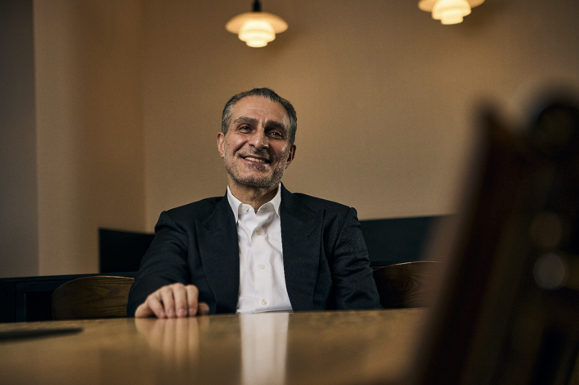
Across emerging markets, a new generation of entrepreneurs who built businesses during the economic transition of the 1990s is reaching a pivotal decision point: whether to continue expanding operations or pivot to strategic advisory roles that leverage decades of institutional experience. The transition of Vazgen Gevorkyan from owner-operator to business advisor illustrates this broader trend. Leaders in transitional economies are finding that their ability to navigate regulatory uncertainty and build stakeholder trust has become increasingly valuable to both younger entrepreneurs and international investors. His evolution from digital banking innovator to cross-sector advisor highlights how business leadership in emerging markets can extend its impact beyond direct ownership, fostering sustainable advantages through strategic influence rather than equity control. This shift carries important implications for how entrepreneurial ecosystems develop and how institutional knowledge is transferred across generations.
Table of Contents:
Vazgen Gevorkyan’s educational trajectory reveals how strategically positioned individuals navigated the opportunities of the early 1990s. Born in 1971 in Oshakan, Armenia, to parents working in infrastructure construction, he was exposed early to quantitative business thinking through his mother’s role as a company economist. This formative experience laid the groundwork for his systematic approach to business planning.
Graduating from high school in Yerevan in 1988, Mr. Gevorkyan initially pursued a degree in geology at Yerevan State University, completing his studies in 1993—a period marked by sharp economic contraction following national independence. While not traditionally aligned with business, his training in analytical reasoning and resource evaluation later proved instrumental in assessing capital-intensive projects, particularly in infrastructure and hospitality.
In 1996, he entered a management program at the Academy of National Economy, which had begun integrating Western business principles. He completed his doctoral studies in 2003, defending a dissertation on resource-conservation management in pipeline construction—a clear early indicator of his interest in operational efficiency. An MBA in banking followed in 2004, aligning with his increasing involvement in the financial sector.
Together, this educational path provided Mr. Gevorkyan with the interdisciplinary skills that would shape both his approach to institutional transformation and his subsequent advisory work.

The challenges Mr. Gevorkyan encountered at a traditional bank reflect common issues faced by financial institutions across transitional economies: how to remain competitive with international banks while serving domestic needs often overlooked by global players. When he joined the republic’s first registered financial institution in 1999, it faced the widespread perception of serving primarily corporate clients—a legacy of its roots in a planned economy.
By the mid-2010s, a full rebranding into Evocabank showcased how smaller institutions could harness digital innovation to reposition themselves in a shifting financial landscape. Mr. Gevorkyan helped guide this transformation during a time of internal resistance and market skepticism. Many local consumers still preferred in-person service, and digital banking was often viewed as a secondary feature.
His response combined market research, a rebranding that signaled openness and modernity, and a cultural shift within the institution to promote customer-centric digital services. The “Mobile First” strategy embodied more than just technological change—it expressed a deeper commitment to values like authenticity, simplicity, and transparency. The resulting mobile platform, EvocaTouch, operated across bank affiliations, reinforcing a philosophy rooted in accessibility and openness.
Rather than relying on micromanagement, Mr. Gevorkyan empowered professionals within the bank to lead, fostering a culture of innovation. Even after the bank gained international recognition for its digital banking services, he emphasized that transformation should remain a continuous process—not a one-time achievement.
His departure in 2020 marked the end of a pivotal phase, but the bank’s ongoing growth and recognition affirmed the value of the strategic groundwork laid during his tenure. The institution’s evolution reflected a human-centric philosophy grounded in accessibility, trust, and client-centered simplicity.

Mr. Gevorkyan’s move into hospitality through the LES Art Resort project reflected a broader risk management strategy typical among entrepreneurs in transitional economies—diversifying into sectors offering tangible assets and hard currency revenue. Developed between 2008 and 2018, during a decade marked by global economic volatility, the project demonstrated the resilience of diversification when supported by disciplined execution.
The initiative highlighted his operational strengths: staff development, stakeholder engagement, and long-term planning. By embedding local relationships and emphasizing quality service, the resort carved out a distinctive market identity and garnered several industry awards, broadening Mr. Gevorkyan’s credibility beyond the financial sector.
Between 2020 and 2023, Mr. Gevorkyan shifted fully into advisory roles, stepping away from direct ownership while expanding his strategic influence across multiple sectors. His model is grounded in practical implementation and long-term value creation rather than abstract consultancy.
Domestically, his work has emphasized territorial development and community-focused programs. As an advisor in regions such as Dilijan, he has contributed to initiatives blending private investment with social benefit—revitalizing infrastructure, supporting aesthetic renewal efforts, and promoting sustainable transportation. His involvement with charitable foundations has helped apply structured business methodologies to high-impact philanthropic programming, including education, cultural preservation, and public infrastructure.
He is also active in mentoring networks and business clubs, providing guidance on project management, marketing, and operational leadership. His advisory principles—team cohesion, sustained momentum, and stakeholder alignment—offer adaptable strategies for businesses navigating the complexities of transitional economies.
Internationally, including in the United States, Mr. Gevorkyan applies these same principles while adapting to more mature regulatory environments. His advisory involvement in mixed-use hospitality and real estate ventures reflects a consistent focus on strategic guidance and collaboration with professional teams during execution. These engagements illustrate the adaptability of his advisory frameworks across different markets and conditions.

The professional evolution of Vazgen Gevorkyan exemplifies a growing trend among entrepreneurs in transitional economies who recognize that long-term influence can stem from strategic guidance rather than direct control. As emerging markets mature and institutional ecosystems grow more sophisticated, experienced business leaders are finding new ways to apply their insights and support the next generation.
This shift is important not only for preserving institutional knowledge but also for accelerating inclusive economic growth. The transfer of experience from veteran operators to younger entrepreneurs contributes to ecosystem resilience, fosters innovation, and anchors expertise within local markets.
For international partners, working with trusted local advisors offers more than cultural fluency. It provides critical insight into regulatory navigation, stakeholder management, and project structuring. Through his cross-border and domestic engagements, Mr. Gevorkyan illustrates the unique role that emerging market advisors can play in building sustainable, high-impact business ventures across geographies.